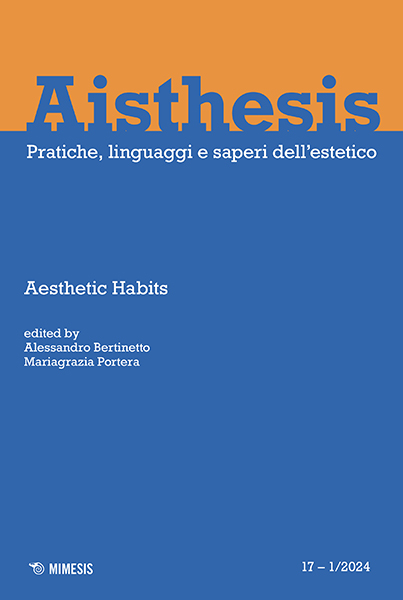Habits Changing Habits. Aesthetic Technologies between Discipline and Experiment in Theater and Performance Art
DOI:
https://doi.org/10.7413/2035-8466012Abstract
The paper gives an account of a peculiar connection between art and habits that started emerging with the historical avant-gardes. Especially in avant-garde theater, artistic practices began developing genuinely aesthetic technologies to transform social habits. By examining three case studies – the biomechanics of Vsevolod Meyerhold, the poor theater of Jerzy Grotowski, and the constructed situations of Tino Sehgal – this paper traces the development of these aesthetic technologies up to contemporary art. Unlike the avant-gardes who sought to eliminate the boundary between art and life or contemporary participatory art, aesthetic technologies maintain the character of artifice. This contribution argues that it is precisely through this artifice that these aesthetic technologies provide the experience of a form of habits different from the one installed by the disciplinary modern regime that Michel Foucault described and its continuation into new forms of self-optimization. By differentiating the functioning of aesthetic technologies from Richard Shusterman’s somaesthetics, the paper outlines their aesthetic as well as critical importance within contemporary neoliberal societies.


